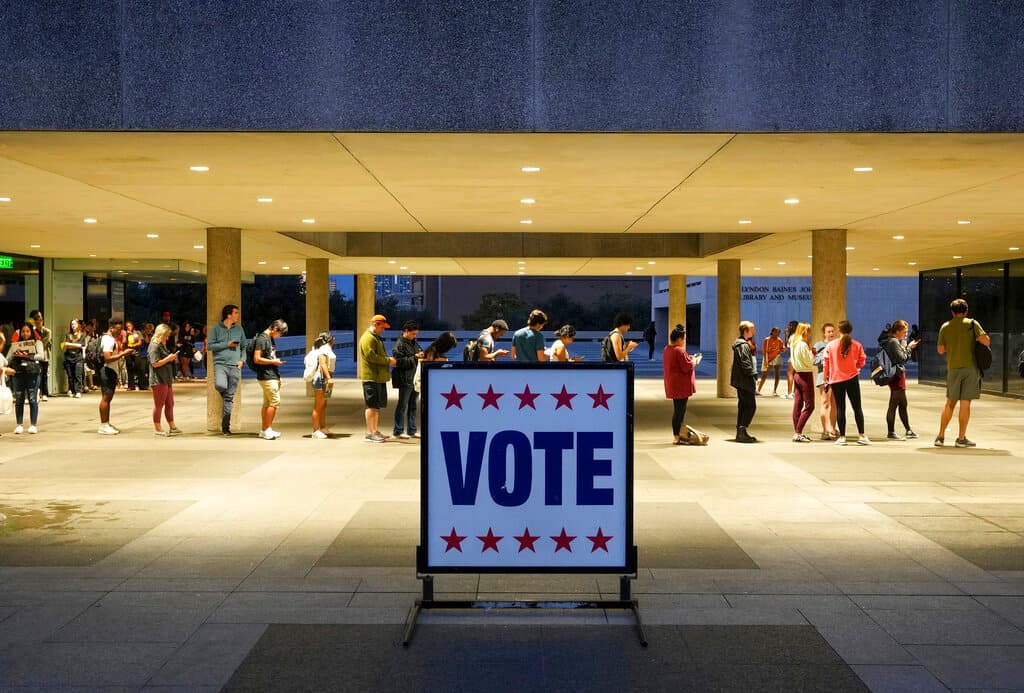‘Shy Trump Voters’ Could Be Poised To Deliver a Shock in Presidential Race
In April 2021, the Pew Research Center found ‘93 percent of national polls overstated the Democratic candidate’s support’ in 2020 compared to 88 percent in 2016.

Vice President Harris is leading President Trump in many national and swing state surveys. Democrats are ecstatic and Republicans dejected. Yet “shy Trump voters” lurk beyond the sight of pollsters, foreshadowing a much tighter race and potentially some Election Day surprises.
Of the eleven surveys comprising the RealClearPolitics Poll of Polls, only two find the candidates up outside the margins of error. Ms. Harris leads by four in Emerson, and Trump by the same number in Rassmussen. Factor in that the Electoral College divides the race into 51 races in the states and Washington D.C., and the picture gets even murkier.
I asked the Democratic pollster and former advisor to President Clinton, Doug Schoen, about the “shy” block’s potential impact. “In both 2016 and 2020,” he told me via text, “Trump got an extra three to four percent of the vote beyond his final poll figures on Election Day.”
Of Trump, Mr. Schoen said, “If this happens again today, he could narrowly win when the polls — as they do now — show a narrow, but clear, Harris lead.” This was the case in 2016, when the FiveThirtyEight forecast gave Secretary Clinton a 71.4 percent chance of winning in its final analysis of data.
Last week, CNN’s senior data reporter, Harry Enten, noted the phenomenon in what he called the “Great Lakes battleground states.” Trump, he said, “was underestimated” by nine points on average at this point in 2016” and “by five points on average” in 2020.
“If you’re a Kamala Harris fan” looking to pop champagne, Mr. Enten said, “do not do it.” However, with Ms. Harris’s honeymoon period in full swing, such sober analysis is rare. Democrats, who have won the popular vote in all but one presidential election since 1988, have come to expect being on top.
Republicans, practiced at delivering concession speeches, see another loss looming. They have learned, since President Reagan rode off into the sunset, that support for the GOP in general and Trump in particular is best whispered in private.
This reticence plays havoc with polls. Gallup, which made its reputation with an accurate forecast of the 1936 election, ceased “horse-race polling” in 2016 after a string of misses. In April 2021, the Pew Research Center found “93 percent of national polls overstated the Democratic candidate’s support” in 2020 compared to 88 percent in 2016.
FiveThirtyEight wrote that in 2016, there was “an underestimating of Trump by about 1.5 percentage points,” and in 2020, “a massive 3.5 percent underestimate.” Note that the number of shy voters increased, a combination of Democratic attacks on Trump’s presidency and his compulsion to shoot himself in the foot whenever he started hitting his stride.
In the four years since the last presidential election, Trump was again impeached, this time for incitement of insurrection,related to January 6, but was discovered by the Senate to be not guilty. In New York, he has been indicted, convicted, and likened by the Biden-Harris Administration to Adolf Hitler.
If supporting Trump in 2016 was just risqué, it was uncool by 2020, and is now radioactive. Those are the verdicts of the press, pop culture, and social media dominated by the left. Conservative outlets feed the sense of isolation, too, all the better for sponsors selling doomsday bunkers and survival rations.
Another factor exacerbating the shyness is Ms. Harris’s heritage. This phenomenon, known as the Wilder or Bradley Effect, is named for two Black candidates — Tom Bradley of California and Lawrence Douglas “Doug” Wilder of Virginia, both of whom underperformed their pre-election polls.
Analysts concluded that voters were reticent about saying they’d vote against non-white candidates for fear of appearing racist. For female candidates like Ms. Harris and Mrs. Clinton, social peer pressure will be a hidden hand playing havoc with poll results.
We won’t know the impact shy Trump voters have until they speak in the privacy of the voting booth. The wisest course until then is to take all surveys with at least some grains of salt, to avoid being nudged toward overconfidence or despair, mindful of a past that shows no one can predict the future.

